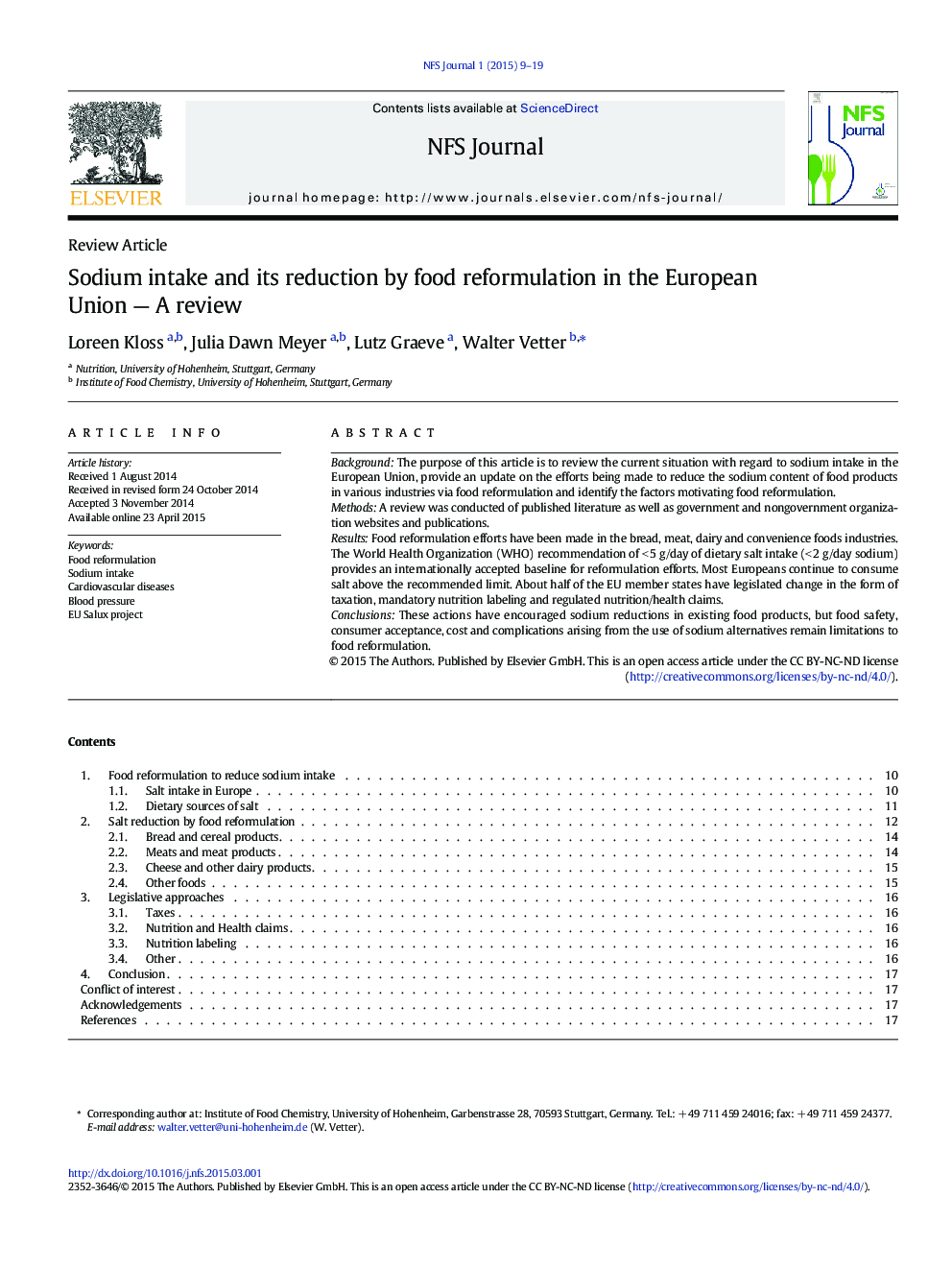| Article ID | Journal | Published Year | Pages | File Type |
|---|---|---|---|---|
| 1085620 | NFS Journal | 2015 | 11 Pages |
BackgroundThe purpose of this article is to review the current situation with regard to sodium intake in the European Union, provide an update on the efforts being made to reduce the sodium content of food products in various industries via food reformulation and identify the factors motivating food reformulation.MethodsA review was conducted of published literature as well as government and nongovernment organization websites and publications.ResultsFood reformulation efforts have been made in the bread, meat, dairy and convenience foods industries. The World Health Organization (WHO) recommendation of < 5 g/day of dietary salt intake (< 2 g/day sodium) provides an internationally accepted baseline for reformulation efforts. Most Europeans continue to consume salt above the recommended limit. About half of the EU member states have legislated change in the form of taxation, mandatory nutrition labeling and regulated nutrition/health claims.ConclusionsThese actions have encouraged sodium reductions in existing food products, but food safety, consumer acceptance, cost and complications arising from the use of sodium alternatives remain limitations to food reformulation.
